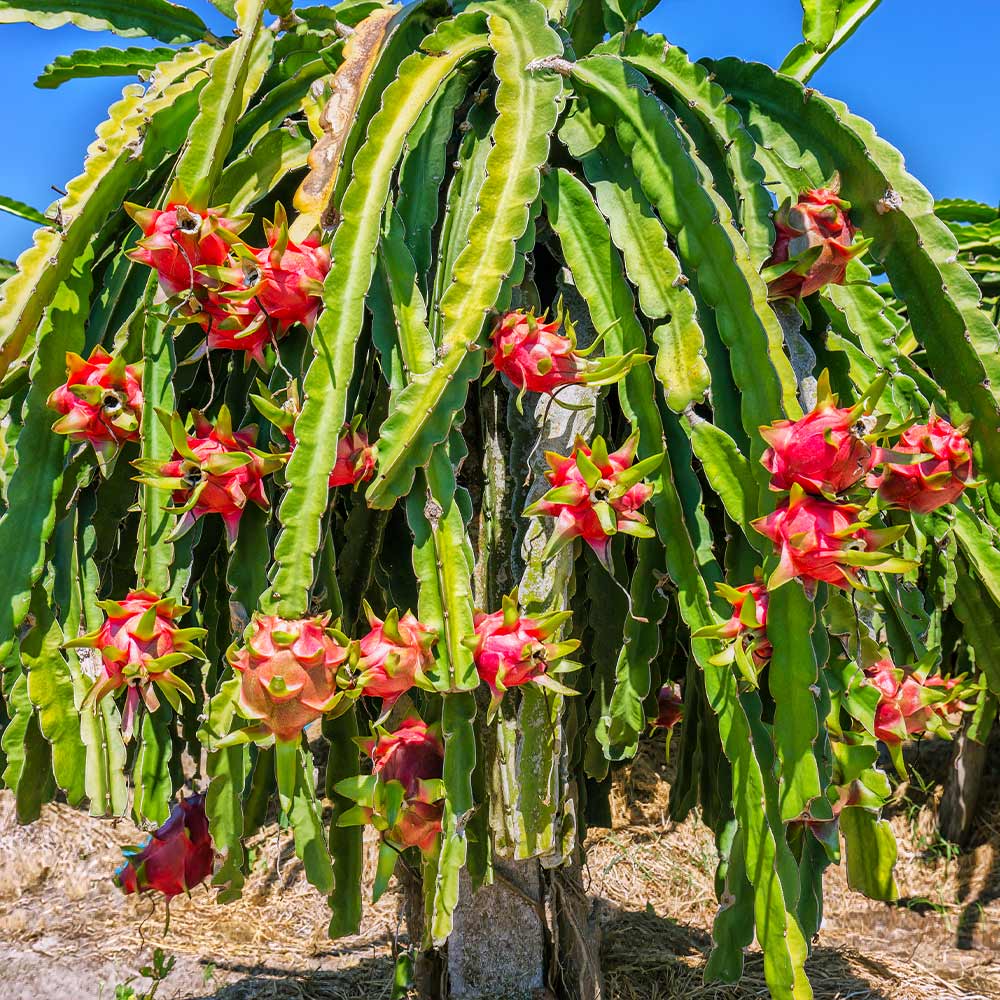Dragon Fruit Plant: A Tropical Delight
Dragon fruit, also known as pitaya or pitahaya, is a vibrant and exotic fruit native to Central and South America. Its unique appearance, with bright red or yellow skin and white flesh speckled with tiny black seeds, has captured the attention of fruit enthusiasts worldwide. This succulent fruit offers a sweet and refreshing taste, as well as numerous health benefits.
Cultivation and Growth

Dragon fruit plants are primarily grown in tropical and subtropical climates, where they thrive in warm temperatures and ample sunlight. These plants are typically cultivated on trellises or support structures to facilitate growth and harvesting. They are relatively low-maintenance and can be grown in various environments, including greenhouses and hydroponic systems.
Varieties and Appearance
There are several varieties of dragon fruit, each with distinct characteristics. The most common varieties include:

Hylocereus undatus: This variety features vibrant red skin and white flesh with black seeds. It is known for its sweet and slightly tangy taste.
Nutritional Value
Dragon fruit is a nutritious fruit that offers a variety of health benefits. It is a good source of vitamins and minerals, including vitamin C, vitamin B1, vitamin B2, iron, and calcium. Additionally, dragon fruit contains antioxidants, which help protect the body from cell damage.

Health Benefits
Digestive Health: Dragon fruit is rich in fiber, which promotes digestive health and helps prevent constipation.
Culinary Uses
Dragon fruit can be enjoyed in various ways. It can be eaten fresh, added to smoothies and juices, or used in desserts such as ice cream, yogurt, and cakes. The fruit’s vibrant color and unique flavor make it a popular ingredient in many culinary creations.
Conclusion
Dragon fruit is a delicious and nutritious fruit that offers a unique taste and a variety of health benefits. Its vibrant appearance and versatility make it a popular choice among fruit enthusiasts. Whether you enjoy it fresh or incorporate it into your favorite recipes, dragon fruit is a delightful addition to any diet.
FAQs
1. Can dragon fruit be grown in a cold climate?
2. How often should dragon fruit plants be watered?
3. When is the best time to harvest dragon fruit?
4. Can dragon fruit be frozen?
5. Are there any allergies associated with dragon fruit?